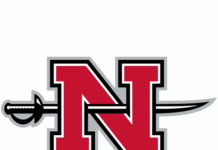For many college students, Greek life (joining a Greek letter organization) is a rite of passage offering a sense of belonging to those who choose to pledge them. The fraternities (for men) and sororities (for women) provide social outlets as well as civic and community engagement opportunities aimed at serving the public good. The history of these organizations in North America reaches back over two centuries to when Phi Beta Kappa was founded in Williamsburg, Virginia as the first fraternity at the College of William and Mary.
Fast forward to the early 20th century where the number of Greek organizations grew on campuses, without growing in diversity. None of them allowed Black and African American students to join their rolls. That lack of inclusion lead to the first Black Greek letter organization, Alpha Phi Alpha, established in 1906 at Cornell University in Ithaca, New York.
Over the next five decades, eight new Black Greek organizations would be founded – four sororities and four more fraternities. Today those organizations comprise the National Pan-Hellenic Council, also known as the Divine Nine.
The council includes Alpha Phi Alpha Fraternity Inc. (founded in 1906), Alpha Kappa Alpha Sorority Inc. (1908), Kappa Alpha Psi Fraternity Inc. (1911), Omega Psi Phi Fraternity Inc. (1911), Delta Sigma Theta Sorority Inc. (1913), Phi Beta Sigma Fraternity Inc. (1914), Zeta Phi Beta Sorority Inc. (1920), Sigma Gamma Rho Sorority Inc. (1925) and Iota Phi Theta Fraternity Inc. (1963).
Today, there are hundreds of Divine Nine (D9) chapters on campuses across the nation and abroad, along with scores more for individuals who’ve graduated college. While the University of Utah does boast a variety of Greek letter organizations, there are currently none from the Divine Nine, although the U campus community does include a number of D9 representatives.
Dr. Rodney Cohen, EdD, Manager of Operations in The Graduate School fondly recalls his days as an undergraduate in Alpha Phi Alpha Fraternity.
“When I look back on my membership in a D9 organization, it is second to none. Many of my close friends and colleagues till this day are a result of my experience in the D9 community, prior to my initiation and afterwards,” he said. “The leadership skills and commitment to community I acquired was fostered as a member of the oldest black Greek lettered organization for black college men.”
Dr. William Smith, PhD, Chief Executive Administrator at Huntsman Mental Health Institute, comes come from a long line of family members who were part of the Divine Nine organizations. It’s a tradition he carried on by pledging Omega Psi Phi Fraternity as an undergrad.
“My grandfather’s sister pledged Alpha Kappa Alpha Sorority in the 1920s at Howard University. Besides her and her youngest brother (a member of Kappa Alpha Psi), other members of my family tree joined various D9 organizations,” he explained. “My mother became a member of Zeta Phi Beta Sorority, so I was inspired to learn about fraternities when I was in high school.”
Smith decided to make a list of 10 Black men he admired most and who fought for civil rights. He noted that a few of them had something in common.
“On that list, the majority were men of Omega Psi Phi Fraternity. Consequently, that narrowed my search to one specific organization,” he said.
“Additionally, my father was appointed by Rev. Dr. Martin Luther King, Jr. to be chief of security for Operation Breadbasket (today known as the Rainbow PUSH Coalition) under the leadership of Rev. Jesse L. Jackson, Sr,” he continued. “Our family’s relationship with Rev. Jackson, himself a member of Omega Psi Phi, was also an inspiration for me to join this organization.”
























